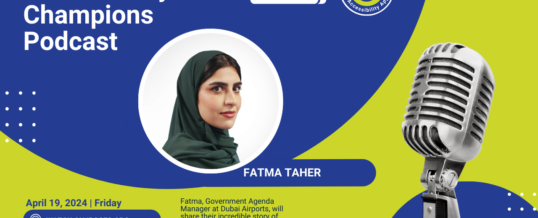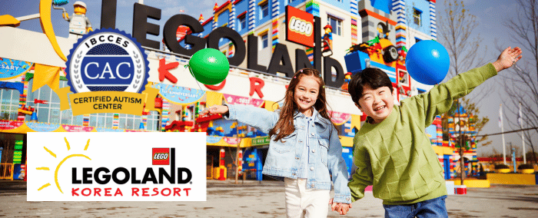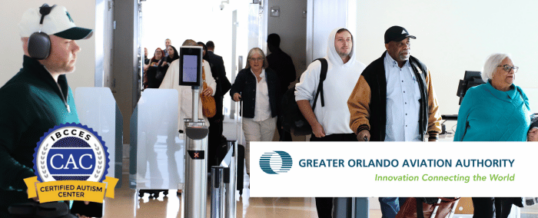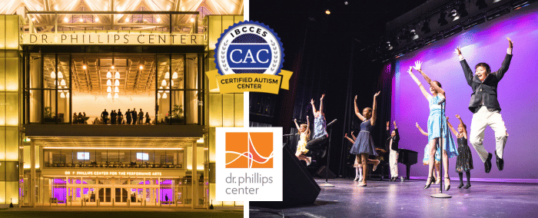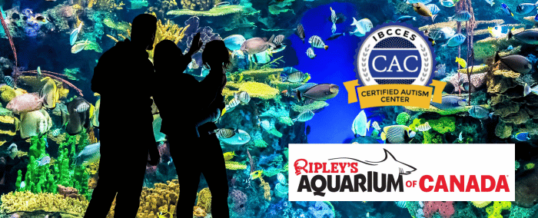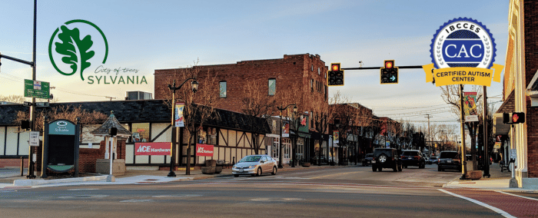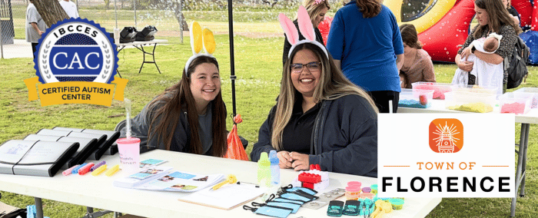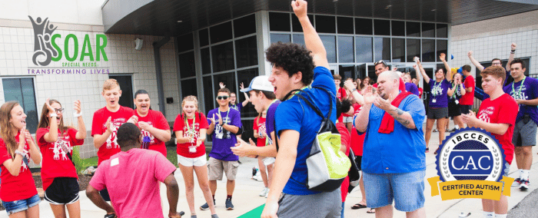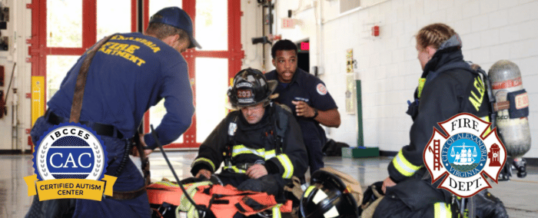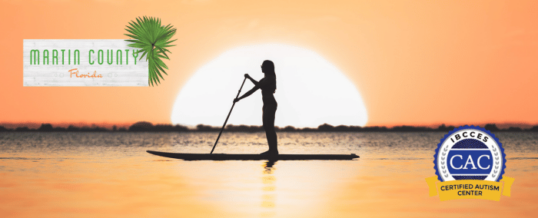About the episode
On this week’s episode of Accessibility Champions podcast, join us as we touch down at Dubai Airports, a global leader in accessible travel. Fatma Taher, Government Agenda Manager, will share with us their innovative services for all abilities, including the travel planner, sunflower lanyards, and autism-friendly routes. We’ll also explore how Dubai International Airport became the first international airport to achieve Certified Autism Center™ status.
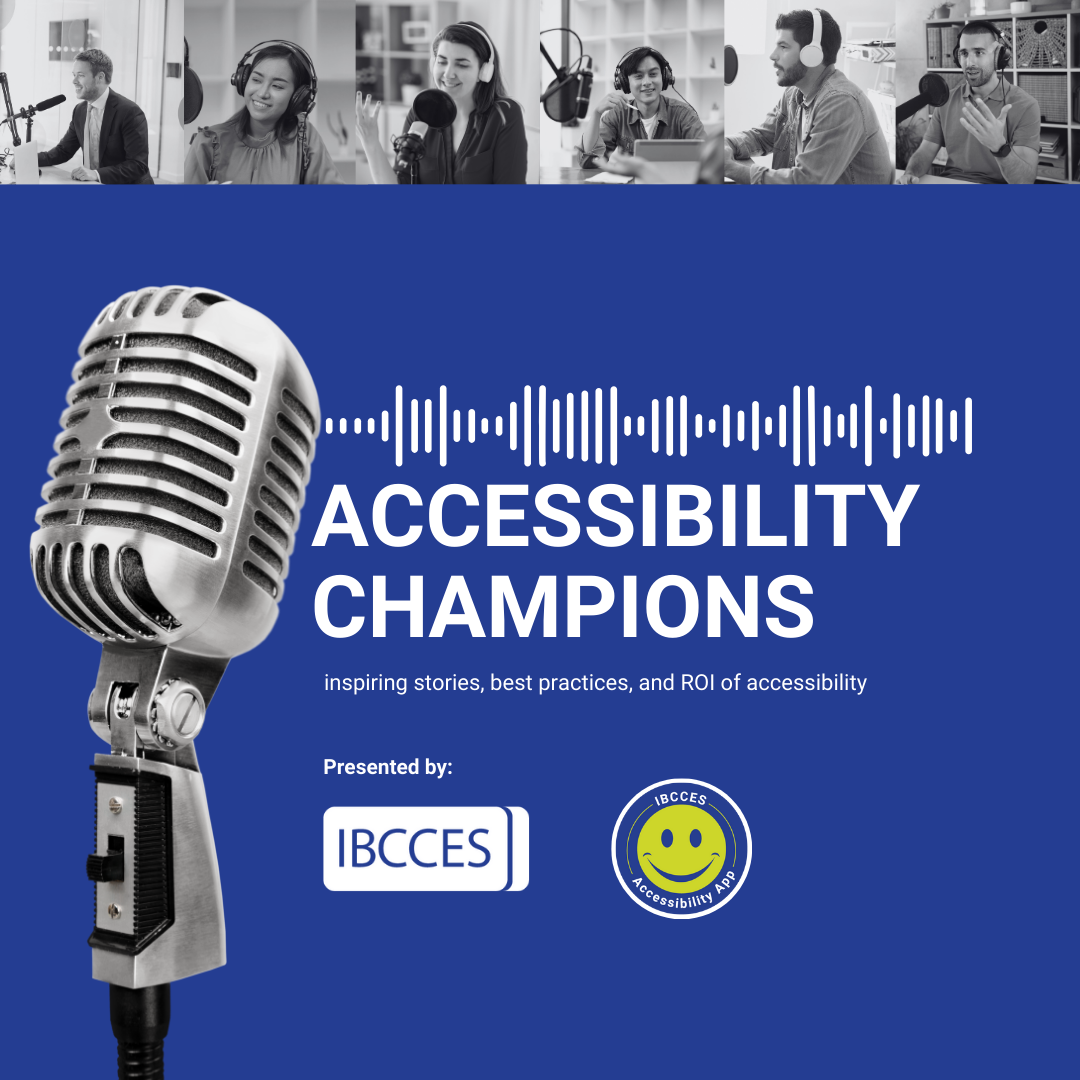
About the show
Accessibility Champions is an educational video podcast series that celebrates the world of accessibility and the inspiring work being done by industry leaders to serve the rapidly growing market of people of determination. Each episode features conversations with prominent figures and community partners across various sectors who go above and beyond to champion accessibility By exploring their initiatives, strategies, and success stories, we aim to shed light on the incredible impact of their efforts.
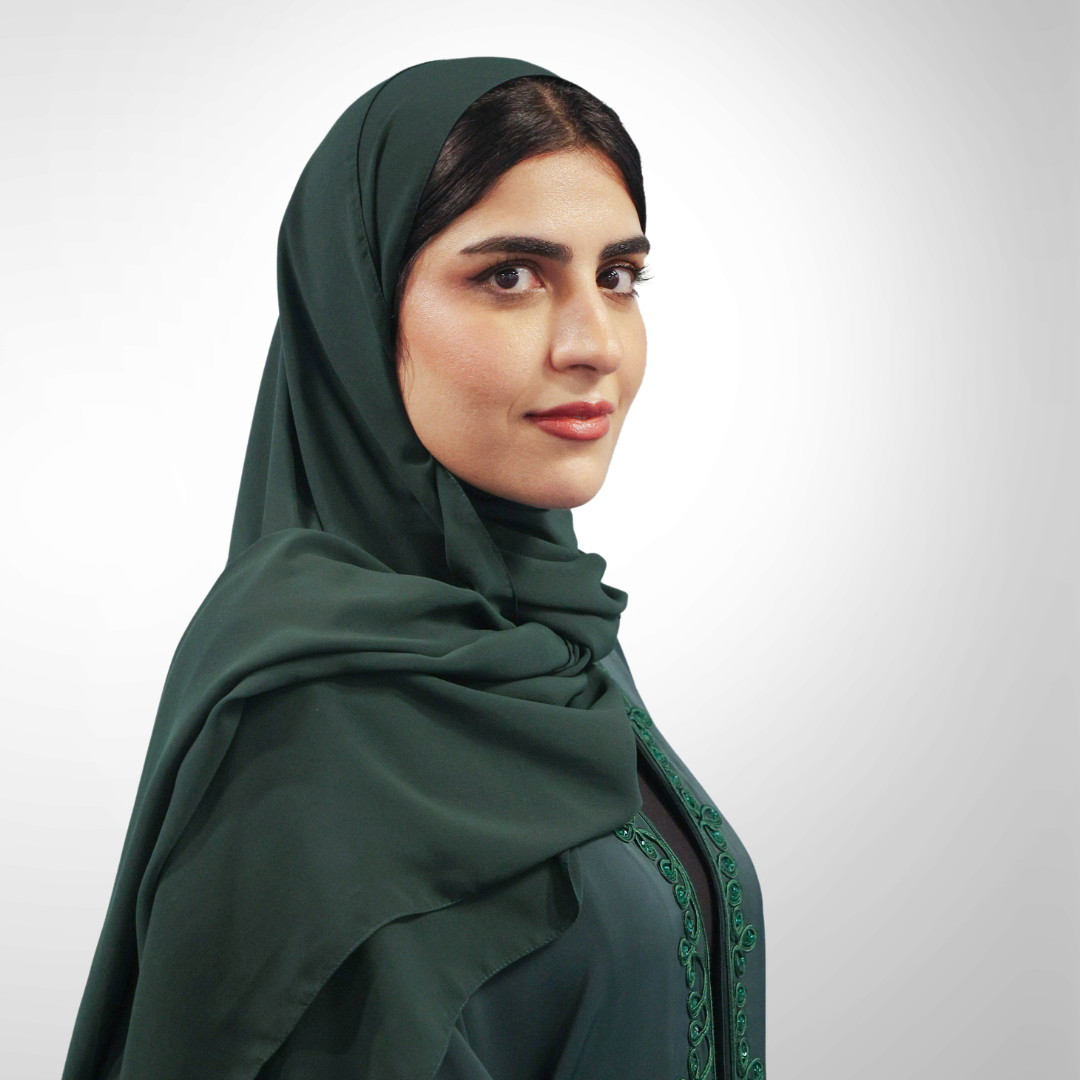
About the guest
As a Government Agenda Manager at Dubai Airports, Fatma Taher works on the implementation of government strategies and projects in collaboration with different functions within the company. Aligning the directions of the government and company to create opportunities for achieving mutual benefit is the key element of Fatma’s role.
Since joining Dubai Airports in August 2014, Fatma has been actively involved in the launching of key agendas and strategies, focusing mainly on People of Determination, Future Foresight, and Innovation. She has managed key projects, such as the Autism Programme, Airport City Gates, 10X Programme and the Dubai Paperless Strategy. Her dedication within the People of Determination space has been acknowledged in the company and among the stakeholders. With the recent launch of Autism friendly products and services, DA is looking forward to a cohesive roadmap of exciting partnerships and a range of POD initiatives that will cater to all classified disabilities.
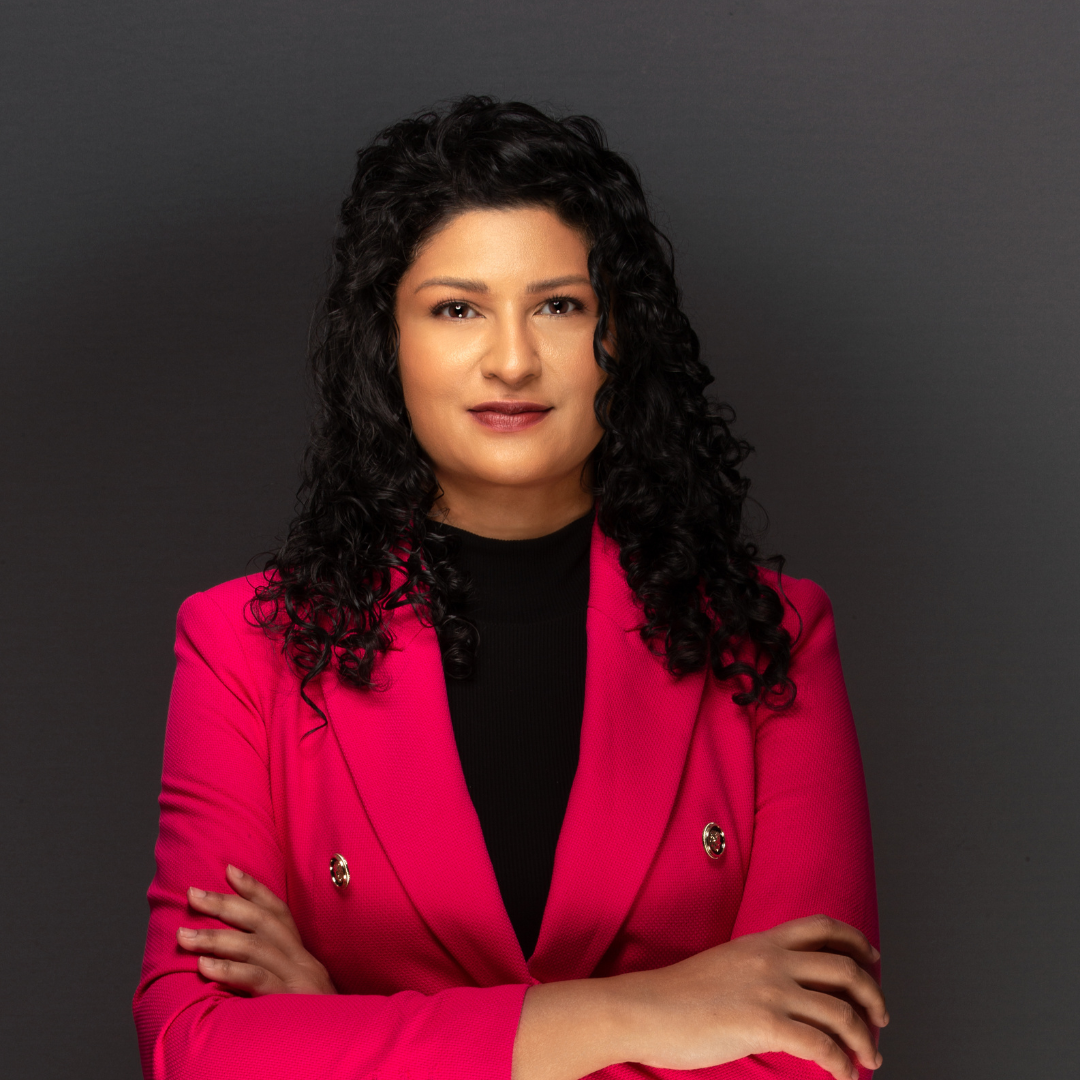
About the host
Dr. Geraldine Naidoo has a Doctorate and a PhD in Natural Medicine and is a certified Trauma Informed Professional. She is also focused on removing “internal” barriers as she provides stress relief and wellness solutions for clients who are dealing with, or have been diagnosed with, Anxiety, Autism, ADHD, depression, pain and other chronic conditions that typically create stress and overwhelm which adds to their existing challenges. She uses a variety of research based techniques to provide impactful solutions that are focused, effective, and non-invasive, with no contra-indications.
Dr. Geraldine Naidoo:
Hello and welcome back to another significant episode of Accessibility Champions podcast. My name is Geraldine and it is my pleasure to highlight some of the driving forces behind Dubai’s unwavering pursuit of guests excellence.
Dubai aims to position itself as the most tourism friendly city in the world. But one size does not fit all. The national and local Dubai policy with regards empowering people of determination has initiated a really exciting drive towards an integrated community that is free from barriers and guarantees the right to a dignified life for all. Currently, citywide efforts are truly admirable. Dubai airports is embracing the diversity of basic human needs, and is determined that no one gets left behind.
Here to tell us more today is our esteemed guests. Fatma Taher, manager, government agenda, Dubai airports, Fatma, hello, and a very warm welcome to Accessibility Champions podcast,
1:20
Fatma Taher:
Hi, Dr. G, it is such a pleasure being here with you today.
Geraldine:
I’m really excited to share a bit more about your expertise and your experience in the field of accessibility. So very, very warm welcome. For me, can you tell us a bit more about yourself, please?
Fatma Taher:
Oh, well, I was born in Dubai, I did all my studies here in Dubai as well. The interesting thing about me is that my background is in finance. So I studied accounting, I worked for a few years in receivables, payables and then I had the shift to strategy. It’s when we started in government agenda in 2017, that I actually started working on accessibility on people of determination agenda and started almost my career accessibility..
2:09
Geraldine:
Amazing. That’s really exciting. And we’re really looking forward for you to share a bit more with us. So Dubai, airports have made some remarkable inroads to cater for those who have sensory and cognitive requirements, can you highlight why this is so important?
Fatma Taher:
First, in Dubai Airport [it] is so important to create inclusive travel experiences for all our guests segments. So we meticulously consider the needs and behaviors of our guests from different disabilities. So we look into the different needs, the different behaviors that are associated with every disability. This type of process is what supported us in creating these inclusive experience.
2:53
Geraldine:
Amazing, and can you tell us what changes have been implemented with regards to travelers with sensory and cognitive requirements? Now, we do know that there are some needs that are quite obvious, you know, like a wheelchair ramp and a wheelchair and so on. But what about those with sensory and cognitive requirements? Can you tell us a bit more please?
Fatma Taher:
So to actually launch products and services that are so specific to specific disability, you need to go and understand what are the common needs? What are the common behaviors, so a lot of changes have happened. Some changes were processed related, other changes were infrastructure based, but I would say that the main change was our people. And thus, it was our journey to get our people ready. So we work closely with centers, specialists, experts to create a customized training that was catered to the entire the DXB community, so we had over 33,000, staff trained for autism readiness.
3:55
Geraldine:
Wow, that is very impressive, wow, congratulations, you’re also the first International Airport to achieve a certified Autism Center status. That is quite remarkable, too. Can you tell us a little bit more about the key factors driving the decision making process behind the certification? Why was it important for Dubai airports to be internationally certified?
4:21
Fatma Taher:
So I was thinking a lot about this question. So for us, this was a no brainer. And this certification is not our first certification. So when we started the journey, looking into autism and the different hidden disabilities, we work very closely with centers and a lot of international establishments. And I think that support, supported us immensely in assessing where do we stand? What are the gaps? If there are any. What are our strong points and what are the opportunities that we can seek to achieve the goal of being autism friendly? So it’s very important to continue looking into these ventures and into the as opportunities and working very closely with experts, you know, there are things that you can cover yourself, but then you cannot assume on behalf of another person. So it’s our thoughtful way of designing our experiences, is that we work with the people themselves. We work with the guests themselves. So they are as much a part of designing the experience as we are.
Geraldine:
Amazing. I love it. So you know, like you said, it’s autism friendly, but also autism certified and internationally recognized that is absolutely beautiful. Fatma, can you tell us a little bit more about services provided specifically for autism?
5:38
Fatma Taher:
So we’ve introduced our autism program back in December 3 2022. And part of the program is large of three main services. That means services, the club and planner, Travel Planner is a visual guide that supports guests in planning therapist, so it talks about tips, it tells you what happens at each and every touch point, what to expect that immigration what to expect them security, how the sunflower lanyard supports you across the different touch points.
What are the offerings at the boarding gates, so you do have the option of boarding first if you prefer so on boarding last again, if you prefer. So, we have also introduced the sunflower lanyards and the sunflower pins. So this methodology is new to the aviation because typically, it’s just the passengers who declare themselves by wearing the sunflower neon lanyard. Our dual identification form allows the guests and the passengers to identify the staff that could support them.
So the staff they do wear the sunflower pin identifying themselves as agents who can support them further with any needs. So they guide them across the journey, they guide them across the touchpoints. And they make them aware of what is available within the autism offering.
The third thing that we’ve created is the autism-friendly route. So that route gives you prioritized service at each and every touch point, starts at check-in goes into immigration security, for prioritized buggy, boarding gates and the future much more services that I would like to talk about with you in a different session.
Geraldine:
Yes, we look forward to having you back at some at some future point. I love that you’ve made it such a seamless experience that is truly truly remarkable. And also, you know, the fact that you’re looking at someone with a little badge is not kind of in your face, but it’s clear to the person that needs the help. That is beautiful.
7:39
Fatma Taher:
It’s a discreet way, I think that is the way that it was designed by the hidden disability team. And I’ve seen how much of a difference it makes to both the operators on the ground and the guests who come with the family members who are autistic.
Geraldine:
So that must be such an incredibly welcome change for everyone involved with that. Thank you. I love that, it’s just brilliant.
So how have these experiences in these changes influenced the airport’s commitment to continually enhance its accessibility offerings.
Fatma Taher:
So we continuously demonstrate our unwavering commitment towards this cause not only because it’s linked to our vision of being the biggest and the best airport in the world. It’s also linked to our government strategy, where we make sure that the rights of people with determination are met on each and every stage of their travel journey. So for us, it’s something that we will continuously continue to champion as we go.
8:44
Geraldine:
Amazing, I think we live in a really exciting time where this change is coming about that it’s really way behind it should have happened years ago. But it’s really exciting to be kind of in the midst of everything while it’s all happening. And we’re really grateful for people like yourself who initiate and also lead these amazing changes. So thank you for that. Fatma, what critical advice would you give to other airports aiming to enhance accessibility and secure a similar kind of certification and recognition?
9:17
Fatma Taher:
I think this certification as an example is a great starting point, especially when you are not so mature within accessibility as an agenda. It has you like I’ve mentioned before, what are the gaps? What are the opportunities, it somehow gives you like a guideline on where to start and what to consider. So I highly, highly recommend that other airports go for local International and any accreditations that are out there and work very closely with the experts. Open up to the community. Let the people tell you what you need. And let them be part of the design of the experience.
Geraldine:
Amazing. Thank you for that. And can you share more about how Dubai Airports is educating incoming travelers, and also letting the world know that the airport is fully accessible and welcoming people of all abilities.
10:09
Fatma Taher:
I think awareness is a continuous journey, there is no point where you can say I should stop, I’ve done enough. So whatever methods are there, whatever channels are there, we try to utilize as much as possible. So you do have the different channels that you share information to the passengers with. So for example, you have the website, you need to make sure that their website is accessible. But the website does have all the information and the website gets updated that I can only as soon as you launch something new, or you do some sort of edits, that passengers are the first people to know about it, then you work closely with your community. So you work a lot with air noise, you work a lot with service providers with stakeholders, we make sure that we are all sending the same message across and that we are cascading the same sorts of information across the entire sector. The other thing is to make the infrastructure friendly as well. So the signage has to be clear, the branding has to be clear. Wayfinding has to be as well, accessible and easy to go from a point to the other within the airport.
11:08
Fatma Taher:
This podcast for me is such a great opportunity to share awareness across a different audience. So we participate a lot as well, and webinars and events. We were part of the accessibility Expo back in October and the Travel and Tourism Conference in January. I love it. I love it. Because that exposure is what we really need for people to understand that, you know, the world has really opened up in so many different ways. So we know that the airport is the gateway to Dubai in the first impression for all visitors for most visitors anyway.
11:42
Geraldine:
And we already know like you’ve just shared that the airport is accessible to travelers. But what about continuity within the city. When people leave the airport, How crucial is it that the whole city provides accommodations and options for people of determination.
Fatma Taher:
So I’m not sure if you’re aware of it, Dr. G or not, but the whole city is picking up with the same movement, we’re all working towards the same goal, which is achieving the 2021 codes, and the United Nations Sustainable goals. So all of us as a community, as a sector, as a travel and tourism sector are working very closely together to achieve that uninterrupted experience, that seamless experience where you cannot really tell if you are still on board the aircraft or you are within date airport itself, or you’re leaving to your next destination. So that is the main aim that we are all working together as a community to achieve.
Geraldine:
I love this. I love that because from start to finish, people know that it’s a complete experience, and they’re not going to be forgotten in any part. That is really, really incredible.
Fatma Taher:
And when you do travel, you don’t say that this was my destination. And I’m going there and this part of the experience is you don’t divide it for us. It’s all one experience. So working together is what support is, you know, to have that elevated experience and costs.
Geraldine:
Absolutely. And I love that. You know, when we started off, we did talk about the team effort. And what a big difference that makes here. So, Dubai Airport is really at the forefront of accessibility initiatives. How does this contribute to a more universally inclusive travel environment?
13:29
Fatma:
We have a slogan here in Dubai airports, we say that we all need the word differently. It’s determination that can access so that understanding is what supports us in creating these inclusive experiences these exclusive products and services. The continuation for excellence is what we seek. So it’s not just about the introduction of a new process or introduction of a new product is seeing it through accidents across this journey from today until the years later. So
14:01
Geraldine:
Excellent. Fatma, do you have a story to share with us?
Fatma Taher:
I have stories but…
Geraldine:
Even just a little, little one.
14:13
Fatma Taher:
So yes, we work very closely with centers in creating the journeys and doing a lot of trials on different products and services. So they become like second family to us. And we have introduced the service. It’s called common Safari, we opened the airport, by the community where they come and enjoy the day enjoy the travel experience enjoy being on board the aircraft, getting that experience across the different touch points. So what I’ve learned working closely with the autism community is that when you meet someone with autism, you’re only meeting one person with autism. And the assurance of them being familiar with their environment with the people with the process is what ultimately makes them take the decision whether to travel or not. So in one of our travel safaris, one of the parents came to me and she said that we feel safe now. Because we know the people who are working to support us and create all these experiences for us. So I think from all the experiences and the stories that I know this one that resonates with me the most.
Geraldine:
I love it. Thank you for sharing that. You know, that’s true Dubai style. If you could find one word, it’s a synonym for Dubai, it would be innovation, right?
Do you have a favorite quote, or a uniquely Fatma motto?
15:47
Fatma Taher:
Always strive to make a difference, wherever, whenever possible.
Geraldine:
I love it. Thank you very much. And you surely are living that out. We love it.
Geraldine:
Excellent. Thank you, Fatma. So we hope you’ve enjoyed today’s valuable session. And we invite you to share this information and help us create a more accessible and thrilling environment for everyone. Working together, as you’ve heard, is powerful. We invite you to collaborate with us in forging an environment of equal access, regardless of ability. For more information, go to I B C C E S .org. That’s IBCCES.org. Fatma, is there anything else you’d like to add?
Fatma Taher:
That we are here and we are available. Please just share with us anything that you require. And we’re more than happy to support you.
16:43
Geraldine:
Brilliant, thank you for the invitation. How can people contact you? So we do have our CRM, it’s a bit of an in the website.
16:52
Fatma Taher:
It’s like a feedback form. And we look at it very closely back with the Travel Safari. It’s got initiated by requests from a parent.So, any suggestions, any things to consider, please just seek us out and the feedback form you’ll find on our website.
17:13
Geraldine:
Thank you very much for making a huge difference in the world a very welcome difference. May your week be filled with the unwavering spirit of determination. See you next week.
APR
